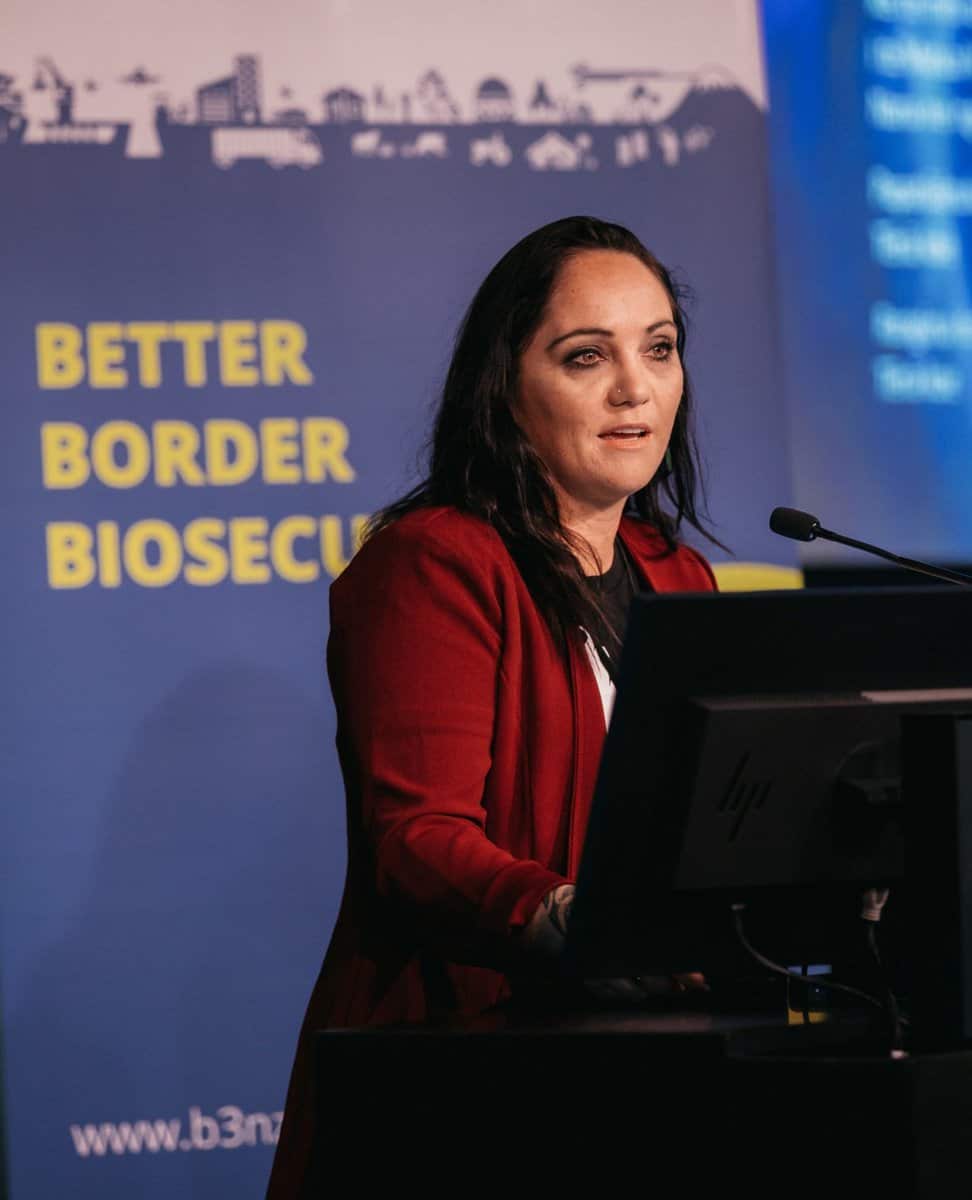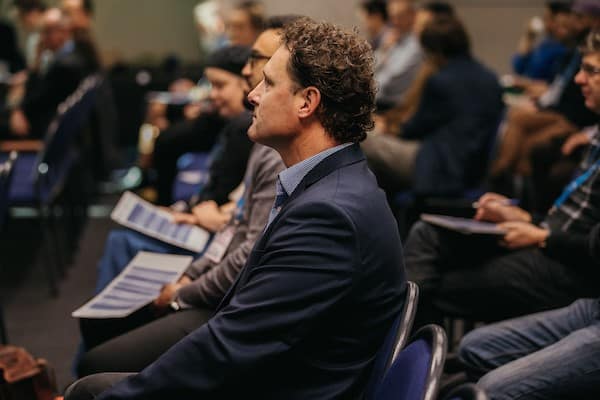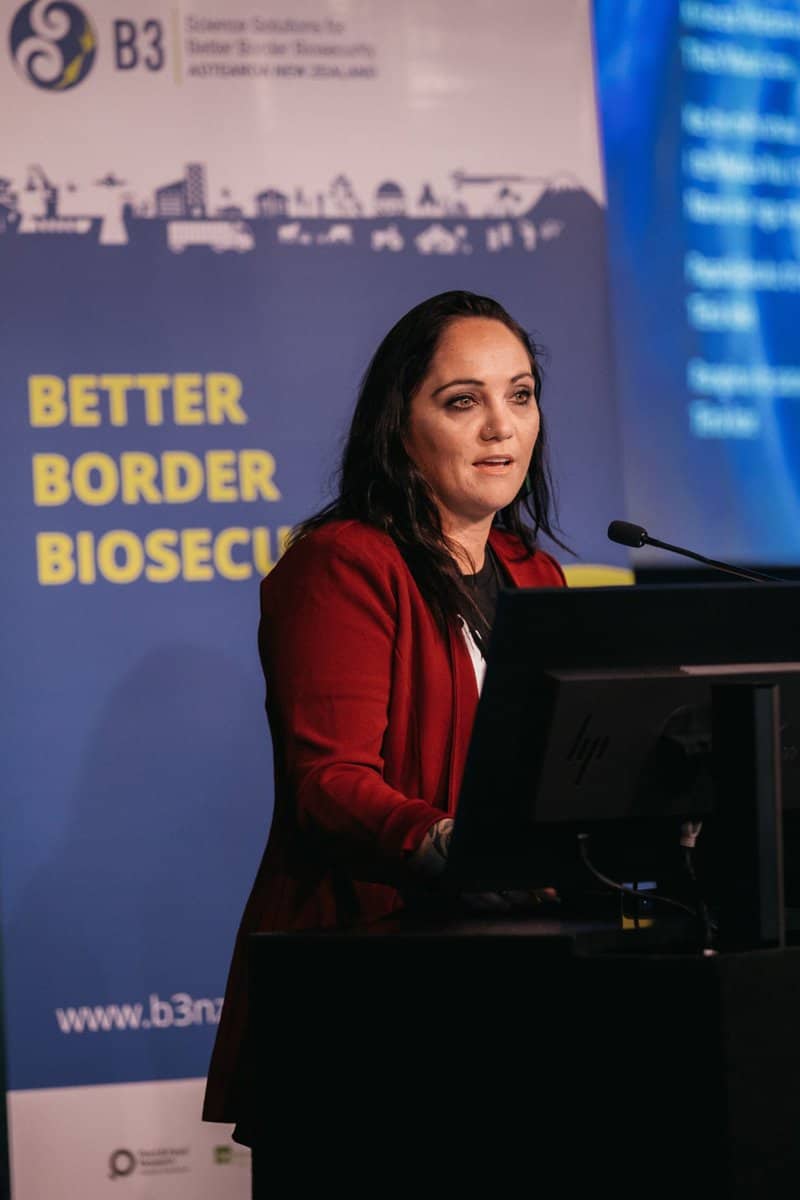
Biological Heritage Kaihautū Ngātahi Melanie Mark-Shadbolt was one of the conference’s two keynote speakers and spoke eloquently about the need for Māori and Te Tiriti to be at the heart of biosecurity science. Melanie is also on B3’s Collaboration Council.
The other keynote speaker was Dame Juliet Gerrard, the Prime Minister’s Chief Science Advisor, who gave insight into the highest-level decision making during the pandemic, much of which was done at break-neck speed and based on the science of the day.
B3 Director David Teulon said collaboration underpins the group so it was wonderful people were able to come together in person after such a long time connecting virtually. “There was a real buzz throughout the two days of conference as people re-connected,” he said.
“Border biosecurity underpins the economic prosperity and environmental health of Aotearoa New Zealand and this has become especially evident during these COVID-19 times. It was immensely satisfying the B3 conference brought together New Zealand’s communities of interest for plant border biosecurity research and uptake including government, industry and science, CRIs, universities, Māori, students, and the important wider community.”

David said topics covered in talks and panel discussions ranged from the major biosecurity issue of the day (COVID) to options for a more joined-up biosecurity system.
“I hope, as well as strengthening relationships and emphasizing the value of collaboration, the B3 conference reinforced the importance of excellent border biosecurity science to safeguard the security and welfare of our natural environment; to protect, retain and build value in our plant systems; and to provide investor confidence for continued growth and innovation; as well as maintaining important market access for our forestry, horticulture, arable and pastoral agriculture industries.”
Industry and government attendees commented on the value of the conference. Aurelie Castinel, MPI Science Programme Lead, noted it was a really stimulating, inclusive and diverse programme. Steve Rich, GIA Chief Executive, said it was a really successful conference that stimulated many important ideas for future action.
